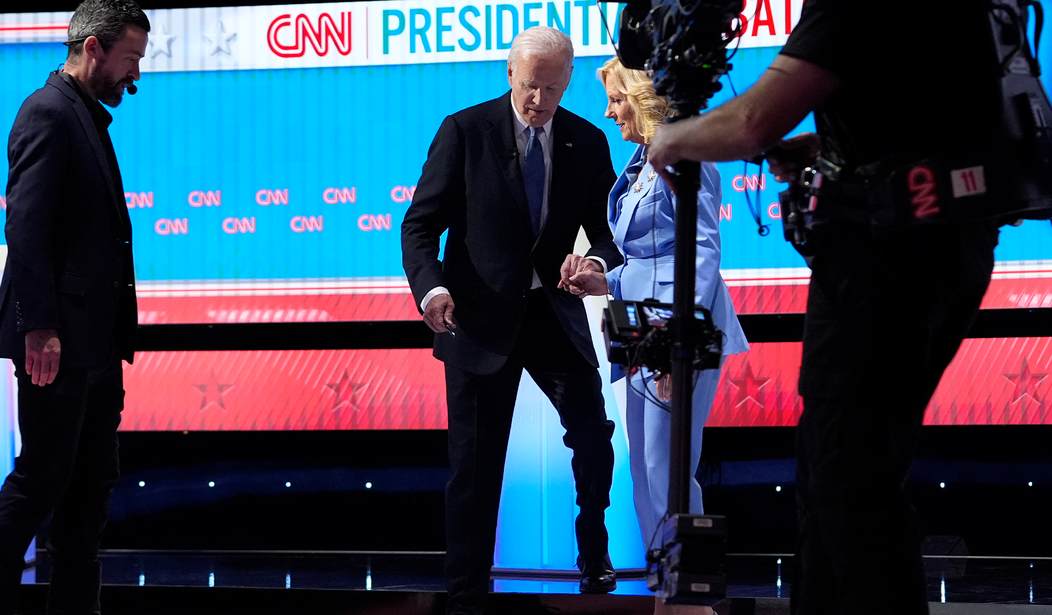In crisis communications, often, the number of people who hear, see, and read about your post-event explanation is far greater than the number who witnessed the actual crisis, so if you can control the post-event narrative, you can control public opinion. The event itself is secondary; the spin defines how we ultimately feel about it.
The Trump-Biden presidential debate was NOT one of those times—and not just because of the size of the audience that watched it live.
In fact, it’s spin-proof. Here’s why:
If your livelihood – or self-identity and/or group affiliation – depends on you perceiving politicians or events a certain way, then your vote really isn’t up for grabs. You can’t change people's minds when their wallets and/or hearts won’t allow it. So, forget about the hardcore Democrats and entrenched Never Trumpers for the moment; for PR purposes, they’re irrelevant.
But to understand everything else, you need to board a time machine and travel back to 1984.
Over the past 50 years, the three GOP presidential candidates that the Left has most despised were Donald Trump, Ronald Reagan, and George W. Bush – in that order. Actually, the animosity and vitriol that’s currently heaped on Trump is eerily similar to the Left’s unrelenting, teeth-gnashing hatred of Reagan. Time and distance have softened their barbs, and perhaps in hindsight, Reagan doesn’t seem as threatening anymore, but during the 1980s, Reagan was an “amicable dunce” who loathed the poor, was destroying America, shredded the Constitution, and his cowboy ways would undoubtedly lead to nuclear Armageddon. To them, Reagan was literally the Devil. (And that’s no exaggeration: They even pointed out that each of Ronald Wilson Reagan's names has six letters—6-6-6!
This was the socio-political backdrop when Lesley Stahl of CBS made a startling discovery.
1984 was an election year, and CBS (and the rest of the mainstream media) did what they’ve always done: They assumed the posture of unbiased objectivity when they were really throwing nonstop shade at the Right while cheerleading the Left. To this end, Stahl aired a report on CBS News that absolutely blasted Reagan for avoiding the “real issues” of the day, lying about his policies, misleading the American people, and trying to take credit for things he never did.
“It was, I’ll be honest with you, a fairly tough report,” Stahl acknowledged – which is D.C.-speak, of course, for a vicious, over-the-top, no-holds-barred attack on conservatives.
In fact, it was so searing – so downright brutal – that Stahl worried that none of her sources in the Reagan White House would ever speak to her again!
But then something happened that stunned Stahl, leaving her speechless:
An official from Reagan’s White House called her, sincerely(!) thanking her for the “great piece” she aired.
It… just didn’t make any sense to Stahl. Hadn’t they seen her report?! She actually blurted to the official, “You’ll have to explain this [their positive feedback] to me.”
And then the official told her that while her voice-overs were blasting Reagan and pillorying him for being dishonest, uncaring, hateful, evil, etc. (you know, the usual), they were also showing images of Reagan visiting old people in an assisted-living facility, attending the Special Olympics, and looking (appropriately enough) Reaganesque. He was smiling, balloons were lifted high in the air, American flags were being waved, and Reagan was beaming from ear to ear, brimming with energy, vigor, and confidence.
“Oh, Lesley,” the official told her, “the American people don’t listen to what you say; they only see those great pictures of Ronald Reagan. And while you were yammering away, we saw those wonderful pictures.”
When a major event happens, it’s not the event itself that we most remember. Instead, we remember how the event made us feel. It’s our emotional takeaways that matter most. THIS is how audiences truly process information.
Respectfully, when it comes to PR, Ben Shapiro is almost exactly wrong when he says, "Truth doesn't care about your feelings'; in truth, “Feelings don’t care about your facts.”
For President Biden, it’s the images – and, specifically, how the audience felt when they saw these images – that have now permanently redefined the Biden brand. You can use spin to explain away a bumbled one-liner or a badly mangled answer, but those jarring, shocking images of Biden – his mouth agape, that lifeless stare, his sickly mannerisms – are permanently taking root in the minds of the American people. They’re indelible images.
And they’re never going away.










Join the conversation as a VIP Member